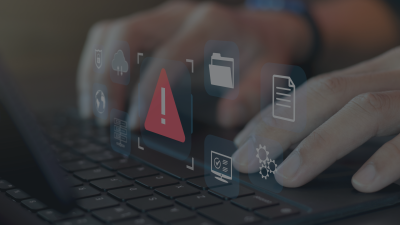
Improving access to redress for workers vulnerable to violence and harassment in South Asia
Experts discuss the factors that make some workers more vulnerable than others to violence and harassment.
This page is approximately a 4 minute read
This page was published on

total investment by Lloyd's Register Foundation in 2023 into projects to put the World Risk Poll into action.
When a disaster occurs or is about to occur, one of the most important things to do is warn the affected population about any impending hazard or actual disaster. Warnings provide vital information to the population and allow people to take protective action. Despite being widely acclaimed for saving lives, early warning systems are only available to half of the world’s countries.
‘Last mile’ communication of warnings to the most vulnerable people is often challenging, as is getting people to heed the advice given in warnings. One of the reasons for this is that little is known about where people access information about possible disasters, which organizations they go to for that information, and what affects people’s individual and family disaster preparedness. This gap in our knowledge often prevents emergency managers from designing the most effective early warning systems. This project seeks to address this knowledge gap in order to better serve populations at risk of disasters.
We are going to use statistical methods to analyse the data in the World Risk Poll to compare it across different groups of people, which will allow us to see patterns and trends. We hope that this will help us identify which social factors influence where people get information about possible disasters, which organizations they go to for that information, and what affects individual and family disaster preparedness. We will also look at the data to identify whether, and to what extent, the Covid-19 pandemic has affected how people think about the threats they are faced with and their trust in government. We will test factors such as age, level of education, household size, household income, prior disaster experience, warning experience and others.
We hope that our work will make people safer around the world. By creating new knowledge about early warning systems, we will improve skills and education about public warnings. This will enhance public safety in those countries that are building new or improving existing early warning systems and ultimately better protect people and infrastructure. The net result should be fewer deaths and injuries from disasters around the world, and less damage to businesses and infrastructure from natural and technological hazards. Ultimately, we hope to contribute to climate adaptation, by making people safer from natural disasters, such as hurricanes and wildfires, which are becoming more frequent and more destructive because of climate change.
The World Risk Poll is a massive worldwide survey of 125,000 people in over 120 countries. It covers a broad range of issues related to people’s perception about risk, and is the only global survey that addresses the full extent of topics we need to answer these critical questions. It is this unique combination of geographical and topical breadth that makes this research possible. Our project will begin with a pooled analysis across the entire sample to provide a ‘big picture’ overview, and then we’ll deep dive into the data on a country-by-country basis to develop a ‘profile’ for each of the countries included in the World Risk Poll.
We want this project to be an opportunity to connect, learn from, and provide feedback to the global disaster risk management community. We want to hear from emergency management, business continuity, and organizational resilience professionals who design and implement early warning systems around the world, as well as policymakers who bear the responsibility of protecting their constituencies. At the organizational level, we welcome the input of government emergency management agencies, critical infrastructure owners and operators, and businesses around the world. We believe they can all benefit from the early warning systems knowledge that this project endeavours to develop.
To find out more about this project, get in touch with the project team at [email protected].